- Home
- Madeleine L'engle
The Irrational Season
The Irrational Season Read online
EARLY BIRD BOOKS
FRESH EBOOK DEALS, DELIVERED DAILY
LOVE TO READ?
LOVE GREAT SALES?
GET FANTASTIC DEALS ON BESTSELLING EBOOKS
DELIVERED TO YOUR INBOX EVERY DAY!
The Irrational Season
Madeleine L’Engle
For Carmen Gomezplata
Contents
1. The Night Is Far Spent ADVENT
2. Sometimes I Forget to Tell You How Much I Love You CHRISTMAS
3. Rachel Weeping HOLY INNOCENTS
4. To a Long-Loved Love EPIPHANY
5. Lion and Lamb LENT
6. The Noes of God GOOD FRIDAY
7. The Icon Tree EASTER
8. The Blue Balloon ASCENSION
9. Whispers PENTECOST
10. Show Me Your Hindquarters and Let Me Hear You Roar TRINITY
11. Setter and Swallow TRANSFIGURATION
12. The Day Is at Hand ADVENT
Preview: Two-Part Invention
Acknowledgments
A Biography of Madeleine L’Engle
1 … The Night Is Far Spent
New York.
Two o’clock in the morning. A thin, chill November rain is falling. I stand at the dining-room window, holding a comforting mug of hot bouillon, and look out at the never-wholly-asleep city. A taxi moves slowly along West End Avenue. A young woman walks down the middle of 105th Street with a very large Great Dane. My Irish setter is asleep in the bedroom; he knows that it is much too early to get up.
I enjoy these occasional spells of nocturnal wakefulness, and I am never awake alone. Across West End Avenue there is an apartment building where the eleventh-floor windows are always lit, no matter what time it is. This night, in another building, someone is studying by a single light bulb suspended from the ceiling. The Hudson River is visible through television aerials and between two tall apartment buildings on Riverside Drive. Ours is a restricted view, but it is a view, nevertheless, and I love it. There is a small ship, a freighter, I think, moving slowly along the dark water, its lights both warmly greeting and mysterious. What looks like a star grows brighter and reveals itself to be a plane coming in to land at La Guardia; but there is a star left behind in the wake of the plane, a pale city star.
I sip hot bouillon and feel relaxed and at peace at this beginning of a new year—a new year for me. I have had another birthday, and this is always like opening a brand-new journal to the first page, or putting a clean sheet of paper into the typewriter as I start a new book; it is all ahead of me, clear and bright, the first smudges and mistakes not yet made. I know that they will come, and soon—I don’t think I’ve ever typed a full page without making at least one error; however, beginnings are always exciting and full of hope.
The beginning of my personal new year comes as the Christian Church’s new year, Advent, begins, the four weeks before Christmas. The Jewish New Year is over; it is not yet time for the secular New Year or the Buddhist New Year; the academic year is already well started. Has there ever been a culture or a religion where there has not been a special day to mark the beginning of a new year? I still function more in terms of the academic year than any other, and probably will continue to do so even when we no longer have children in school or college.
A new year can begin only because the old year ends. In northern climates this is especially apparent. As rain turns to snow, puddles to ice, the sun rises later and sets earlier; and each day it climbs less high in the sky. One time when I went with my children to the planetarium I was fascinated to hear the lecturer say that the primitive people used to watch the sun drop lower on the horizon in great terror, because they were afraid that one day it was going to go so low that it would never rise again; they would be left in unremitting night. There would be weeping and wailing and gnashing of teeth, and a terror of great darkness would fall upon them. And then, just as it seemed that there would never be another dawn, the sun would start to come back; each day it would rise higher, set later.
Somewhere in the depths of our unconsciousness we share that primordial fear, and when there is the first indication that the days are going to lengthen, our hearts, too, lift with relief. The end has not come: joy! and so a new year makes its birth known.
In the Christian Church these weeks leading up to Christmas, this dark beginning of our new year, is also traditionally the time of thinking of the last things, of the ‘eschaton,’ the end.
The night is far spent. The day is at hand.
That day when all nights will be spent, when time will end: we all know it’s coming. Scientists know it, and tell us the various ways that it could happen, but as of now they aren’t predicting when. Various religious groups have predicted the end of the world off and on for hundreds of years. Whenever one of these groups tells us that Doomsday is going to come at midnight on a certain day, I always feel a little queasy. Maybe this time they’re right. It has to happen sometime.
It was a long time before I could begin to think of this ending of all known things, all matter, the stars in their courses, music, laughter, sunrise, daisies and dynasties, starfish and stars, suns and chrysanthemums, as being in any way something to look forward to with joy and hope. It was a long time before I could turn my thoughts to the eschaton without terror. Long before I’d heard about the atom bomb or the hydrogen bomb, or fission or fusion, I feared the end of the world in much the same way that I fear a nuclear holocaust. And the description of the last day in the New Testament sounds very much like atomic devastation: “The present sky and earth are reserved for fire.… The Day of the Lord will come like a thief, and then with a roar the sky will vanish, the elements will catch fire and fall apart, and the earth and all that it contains will be burned up.”
A nuclear holocaust would probably mean the end of human life on planet earth, but not the rest of the solar system, or the galaxy, or any of the hundreds of billions of other galaxies in the universe. And nuclear warfare would be man’s pride and folly rather than God’s anger.
The end of the world in the eschatological sense has nothing to do with pride or anger and it is not just the end of this one planet, but of all planets, all solar systems, all galaxies.
And what then? Is that it? Annihilation?
No. Annihilation might follow an intergalactic nuclear battle, but annihilation is the opposite of what the eschaton is about. It is not nearly so much a going as a coming, an ending as a beginning. It is the redemption, not the destruction, of Creation. We’ve heard the phrases so often and from so many denominations that they’ve become distorted until the meaning is nearly bled from them:
The Second Coming. The Coming of the Kingdom.
What does that mean?
My son-in-law Alan was asked once by a pious woman if our feet would be wafted from the earth, at the time of the Second Coming, before Jesus’s feet touched ground. Ouch. That kind of literalism is not what it’s about.
For the simple fact is that we are not capable of knowing what it’s about. The Coming of the Kingdom is creation coming to be what it was meant to be, the joy and glory of all creation working together with the Creator. In literal language none of it makes much sense, and I can only go once again to my adolescent analogy of the planet on which all sentient life was sightless. If nobody could see, other senses would take over, and everybody would get along perfectly well. But if you tried to explain the joy of sight to anybody on that planet you couldn’t do it. Nobody could understand something so glorious and so totally out of an eyeless frame of reference. Multiply that gap between a blind planet and a seeing one a billion times and we’ll still be far from understanding the difference between creation, now, and creation in the fullness of the kingdom. But I am sl
owly learning that it is something to be awaited with joy and not terror.
When I try to grasp the nature of the universe with my conscious mind, my humanly limited intellectual powers, I grope blindly. I come closer to understanding with the language of the heart, sipping hot bouillon and relaxing, standing by the dining-room window where I can no longer sit on the window sill because of our accumulation of plants—coleus and Swedish Ivy and ferns and alligator pears and philodendron and anything else we can coax to grow in the polluted air of the city—than when I think with mind alone.
The night is far spent. The day is at hand.
Yes. It’s nearly three o’clock in the morning. But I’m not ready to go back to bed yet. I’ll be sorry when the alarm goes off in the morning. Meanwhile, I want to stay here a little longer.
Before I can contemplate the end I have to think about the beginning, and no one is very certain about the beginning, that moment when God created the universe out of sheer joie de vivre. There are three conflicting theories of the creation of the universe. First, there’s the big-bang theory. Once upon a time all matter was One, an incredibly compact mass of unmeasurable compression. And suddenly—and the cosmologists don’t know why—it burst asunder and particles of it flew out wildly and eventually became galaxies, and within the galaxies suns, and planets, and planetary satellites like our moon. And all these fragments of the original Oneness are still flying out, out, out into—what? farther and farther away from each other (how lonely outer space must be), so that the distances between galaxies are becoming greater and greater …
Then there’s the theory of continuous creation. In the vast hydrogen clouds all over the universe, stars are constantly being born, as stars are constantly dying. It’s an attractive theory, but where did those hydrogen clouds come from in the first place?
And then there’s the flux theory: once upon a time all matter was One. And suddenly there was an explosion and particles of this original Oneness went flying out in every direction, stars and galaxies growing farther and farther apart—and then the direction reverses and there is an implosion and everything moves inward, together, eventually becoming the original One, and then there’s another big bang and the Unity explodes and particles go flying out in all directions, and this explosion/implosion continues to repeat itself …
Forever?
And none of these theories answers the question of why there’s anything at all. Why isn’t there just nothing?
My children asked me these things and I was hard put to answer their questions, which are still my own questions.
Why is there anything?
Well, God made something out of nothing.
Why? Didn’t he like nothing?
Well, God is love, and it is the nature of love to create.
Could he have created anything he wanted to?
Of course. He’s God.
Do you like what he created?
Yes. Yes, I do.
Battlefields and slums and insane asylums?
Well, he didn’t create those.
Who did?
We did.
Who’s we? I didn’t create them.
Mankind did. And you’re part of mankind and so am I.
But God created mankind?
Yes.
Why did he create mankind if mankind was going to create battlefields and slums and insane asylums?
I don’t suppose that’s what he created man for.
What did he create him for, then?
Well, it’s the nature of love to create …
So.
What does that do to all Love? It is the nature of love to create, and what do the children of this Love do? We make battlefields and slums and insane asylums.
Out of all this original nothingness wouldn’t you think he could have done better?
Maybe he did. I don’t know why we have the conceit to think we’re the flower of his Creation. Maybe not all life went wrong—and even with all our wrongness there’s the Bach St. Matthew Passion and Shakespeare’s plays and Rembrandt’s paintings and …
The morning star is low on the horizon. There are three more stars pulsing faintly in the city sky. But even if I can’t see a skyful of stars they are there above me nevertheless; the Milky Way, our own galaxy, swings somewhere in the vast dark above the city lights.
All those stars. Suns. More suns than can be imagined. Great flaming brilliant atomic furnaces, the bursting of their atoms providing life instead of death. Providing life for their planets. Perhaps most of the inhabited planets are different from ours, with no battlefields or slums or insane asylums. Perhaps there are planets where that which was created by love returns love, and there is joy and worship and praise and man sings with the angels—not pink and blue and cute, not angels with weak faces and weaker wings—but
O sing unto God
and sing praises unto his Name
magnify him that rideth upon the heavens
praise him in his name
JAH!
shout it
cry it aloud upon the wind
take the tail of his steed
and fling across the sky
in his wild wake
JAH!
he cannot be caught
he cannot be fled
nor his knowledge escaped
the light of his Name
blinds the brilliance of stars
JAH!
catch the falling dragon
ride between his flailing wings
leap between the jaws of the lion
grasp the horn of the unicorn
calling with mighty voice
JAH!
caught in star flame
whipped by comet lash
rejoice before him
cry above the voices of the cherubim
shout alongside the seraphim
JAH!
bellowing joy behind kings
scattered by the quaking of his hills
fleeing before his fire
rush like snow through his thunderous flame
crying with gladness
adoration of his Name
He is Lord
JAH!*
I’m going to be thinking about man, and his part in the world, fairly frequently in these pages, and I want to make it quite clear, right away, that I, Madeleine, sex: f, wife and mother, am just as much man as is Hugh, sex: m, husband and father, and that I’m not about to abdicate my full share in mankind. One of the most pusillanimous things we of the female sex have done throughout the centuries is to have allowed the male sex to assume that mankind is masculine.
It is not. It takes both male and female to make the image of God. The proper understanding of mankind is that it is only a poor, broken thing if either male or female is excluded. The result of such exclusion is that in terms of human sexuality the English language is presently inadequate. The word man has been so taken over by the male sex that I’m not sure it’s redeemable. In the old days the familiar word for male was wer—as in werwolf; and the familiar word for female was wif—and not just as in housewif; the Amazons were wifs, too.
But if I try to use wer and wif, or if I make up new words which would be useful, these unusual words would stick out and the meaning of the sentence might easily be lost. So I’ll stick with our present mutilated generic vocabulary.
I realize how fortunate I was to have grown up in a household where I never encountered sexism, where it never occurred to me that female was in any way less than male; different, yes; but equal. In my work, both in the theatre and in writing, I have been in worlds which are not sexist. The reason the mothers in my children’s books are usually professional women, respected in their chosen fields, is that this is the kind of woman I’ve always known best. In my marriage, sexism has never been a barrier. So I realize that it’s easy for me to be casual about the words for gender. If I had grown up in an atmosphere where the female was put down, where my sex was relegated to an inferior place, I would no
t be able to be so casual.
I will have to struggle along with the old, tattered words, trying never to forget that man is as much a feminine as a masculine word, and if I abandon my share in it, that would be to kowtow to the ‘m.c.p.,’ who would like to hog the whole human gender for himself, and is aided and abetted by the more thoughtless members of the female sex who do not realize that they are not more free by insisting on falling down personholes, but are blindly relinquishing their true identity. And so the male is given his usual opportunity to say, “It was the woman’s fault. She made me eat of the fruit of the tree”—a sniveling and cowardly alibi which immediately broke the proper joyful and creative relationship between male and female.
The Church with blithe disregard of the folly of sexism calls itself the Body of Christ (masculine), and affirms itself also to be the Bride of Christ (feminine), and just as it takes male and female to make the image of God, so it takes male and female to make the Church.
Because I am a female and my sexuality is fulfilled by the male of the species, it is easy for me to respond joyfully to the maleness of the Godhead, but that does not make me see it as exclusively masculine; that would be just as much of a dead end as not acknowledging the essential male genes in myself, or the female genes in my husband, Hugh, which are an important part of our full sexuality.
If, when we were married, Hugh and I became a new entity, he as much as I, then, when Mary conceived by the power of the Holy Spirit, that mighty action affirmed forever the sexual wholeness of Creation. I do not mean that a young and very human girl became one of the persons of the Trinity, but surely the most holy Birth-giver should make us understand that the Trinity embraces all sexuality in a complete and unfragmented manner.
We make complicated what is simple, and the powers of darkness rejoice. But because I, too, am woman and mother, it is my joy and privilege to identify with this young girl who contained within her womb the Power of the universe.
O thou who bears the pain of the whole earth,
I bore thee.
O thou whose tears give human tears their worth,

 Love Letters
Love Letters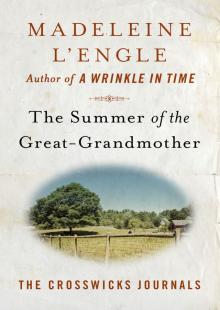 The Summer of the Great-Grandmother
The Summer of the Great-Grandmother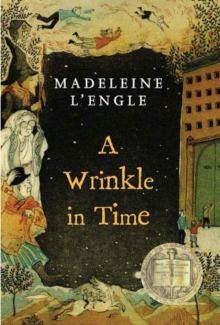 A Wrinkle in Time
A Wrinkle in Time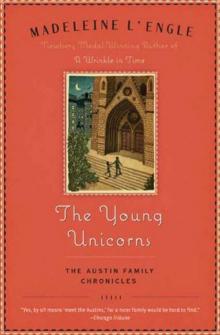 The Young Unicorns
The Young Unicorns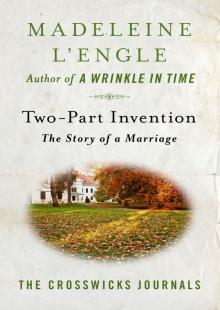 Two-Part Invention: The Story of a Marriage
Two-Part Invention: The Story of a Marriage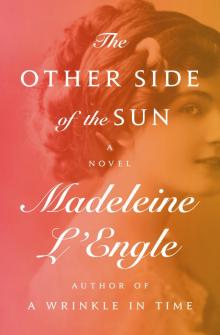 The Other Side of the Sun
The Other Side of the Sun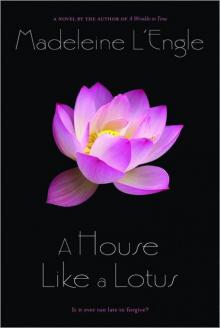 A House Like a Lotus
A House Like a Lotus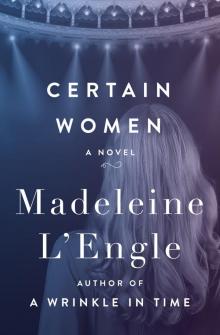 Certain Women
Certain Women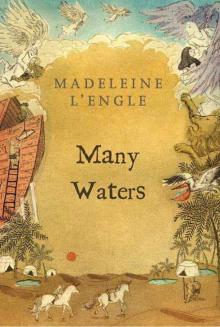 Many Waters
Many Waters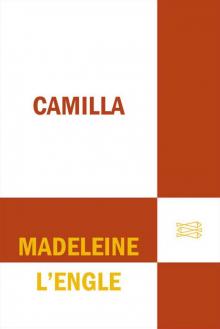 Camilla
Camilla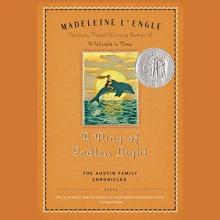 A Ring of Endless Light
A Ring of Endless Light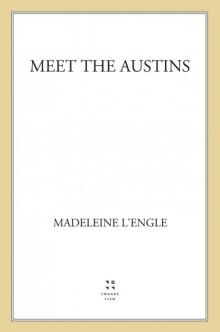 Meet the Austins
Meet the Austins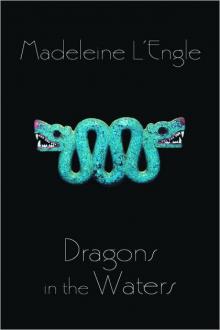 Dragons in the Waters
Dragons in the Waters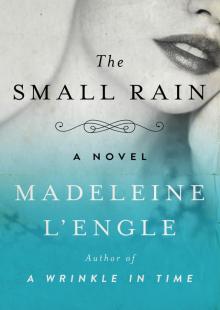 The Small Rain
The Small Rain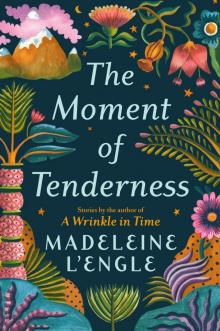 The Moment of Tenderness
The Moment of Tenderness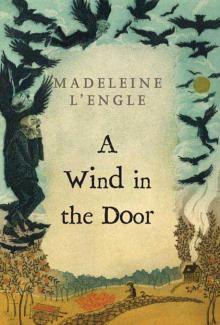 A Wind in the Door
A Wind in the Door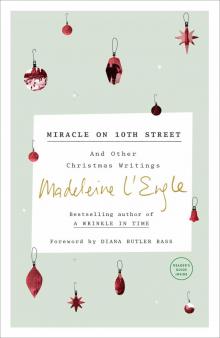 Miracle on 10th Street
Miracle on 10th Street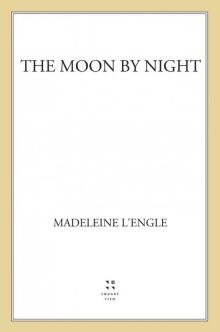 The Moon by Night
The Moon by Night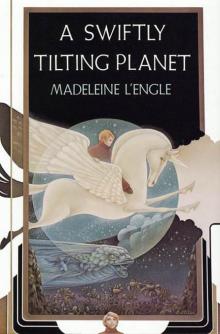 A Swiftly Tilting Planet
A Swiftly Tilting Planet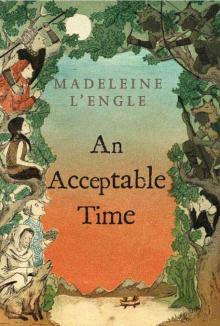 An Acceptable Time
An Acceptable Time A Severed Wasp
A Severed Wasp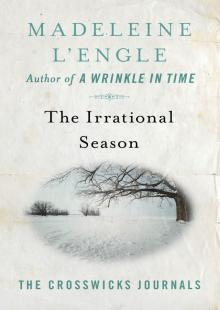 The Irrational Season
The Irrational Season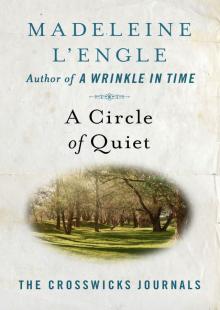 A Circle of Quiet
A Circle of Quiet A Live Coal in the Sea
A Live Coal in the Sea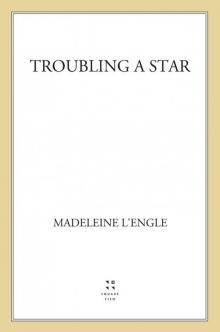 Troubling a Star
Troubling a Star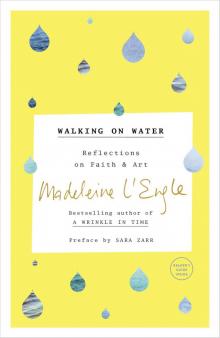 Walking on Water: Reflections on Faith and Art
Walking on Water: Reflections on Faith and Art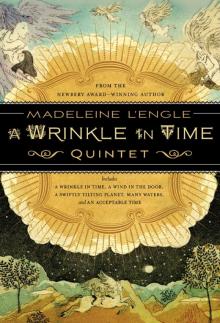 A Wrinkle in Time Quintet
A Wrinkle in Time Quintet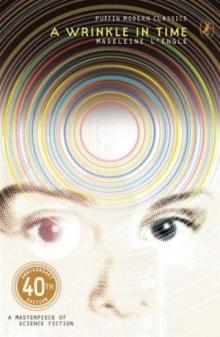 Wrinkle in Time
Wrinkle in Time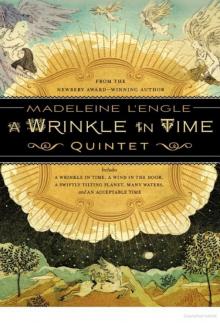 The Wrinkle in Time Quintet
The Wrinkle in Time Quintet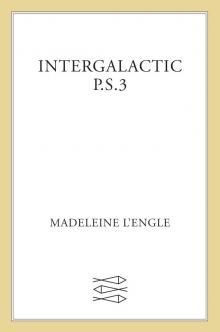 Intergalactic P.S. 3
Intergalactic P.S. 3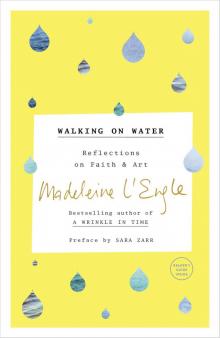 Walking on Water
Walking on Water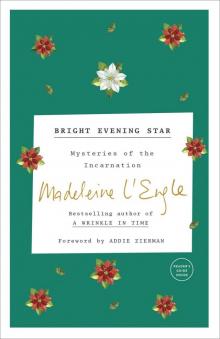 Bright Evening Star
Bright Evening Star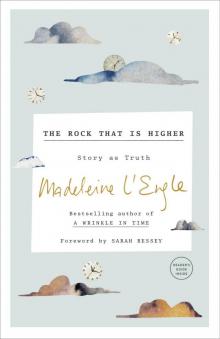 The Rock That Is Higher
The Rock That Is Higher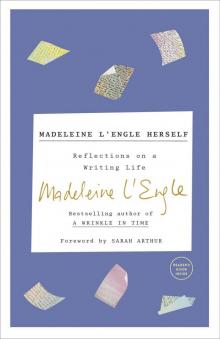 Madeleine L'Engle Herself
Madeleine L'Engle Herself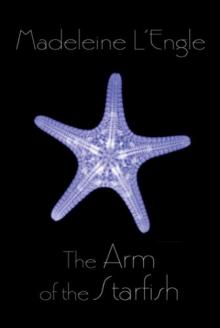 The Arm of the Starfish
The Arm of the Starfish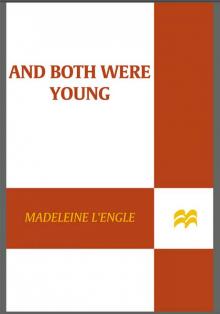 And Both Were Young
And Both Were Young The Twenty-four Days Before Christmas
The Twenty-four Days Before Christmas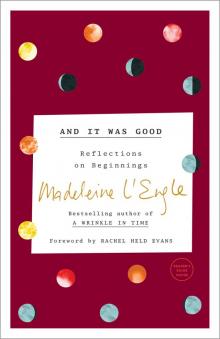 And It Was Good
And It Was Good A Stone for a Pillow
A Stone for a Pillow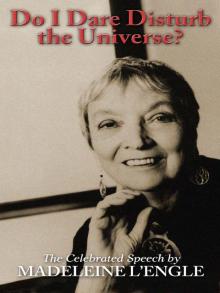 Do I Dare Disturb the Universe?
Do I Dare Disturb the Universe?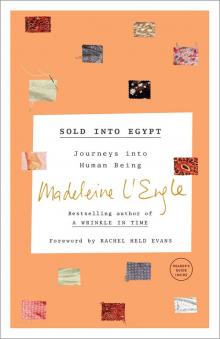 Sold into Egypt
Sold into Egypt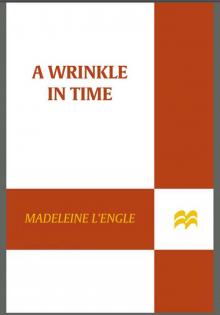 A Wrinkle in Time (Madeleine L'Engle's Time Quintet)
A Wrinkle in Time (Madeleine L'Engle's Time Quintet)